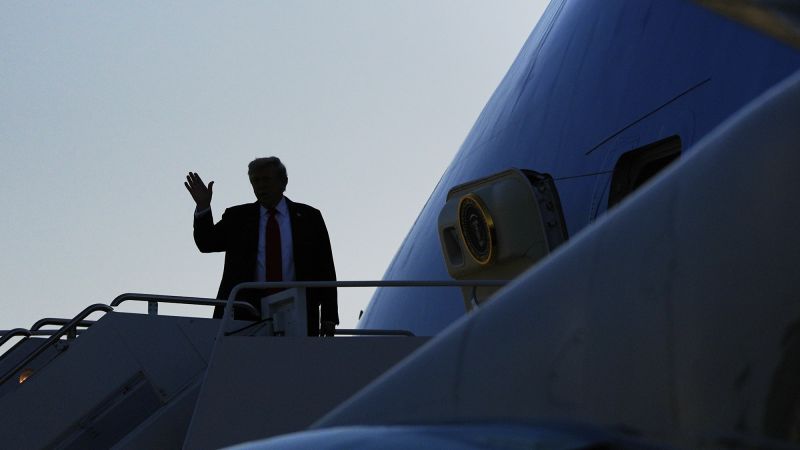In a significant diplomatic development, U.S. President Donald Trump and Russian President Vladimir Putin are reportedly heading to Alaska for crucial discussions that may lead to a peace deal between Russia and Ukraine. This meeting holds the potential not only for conflict resolution but also for thawing the often icy relations between Washington and Moscow. If successful, this diplomatic engagement might unlock opportunities that American businesses have long awaited—resuming trade and investment with Russia, a country they’ve largely shunned due to prior conflicts.
The notion of restoring business ties with Russia has been acknowledged by Trump, who noted on Air Force One, “I noticed (Putin’s) bringing a lot of business people from Russia, and that’s good. I like that, because they want to do business, but they’re not doing business until we get the war solved.” This sentiment reflects a growing desire among both nations to explore economic partnerships, contingent upon resolving their territorial disputes and military engagements.
The delegation accompanying Putin includes significant figures such as Anton Siluanov, Russia’s finance minister, and Kirill Dmitriev, a senior economic negotiator and the head of Russia’s sovereign wealth fund. Trump’s discourse hints at a willingness to explore business opportunities post-conflict resolution, stating, “If we make progress, I would discuss (business opportunities).” This proactive approach indicates a dual focus on diplomacy and economic revitalization.
However, reviving business relations with Russia is easier said than done. Since the onset of the conflict in Ukraine instigated by Putin’s invasion in February 2022, a massive exodus of Western corporations from Russia occurred. Research from the Yale School of Management shows that over 1,000 global companies either left or significantly reduced their operations in the country. Notable giants such as Apple, Goldman Sachs, and Mastercard were among the first to exit, thereby fostering an environment where fewer American companies are available to form new business ventures.
The departure of these corporations has resulted in a void in the market, raising questions about the viability of re-establishing trade. Interestingly, while Western companies pulled out, Chinese firms and local Russian businesses have quickly filled the gaps, creating alternatives to Western products. For instance, “Stars Coffee” emerged as a local response following Starbucks’ exit, utilizing a logo that eerily resembles the original.
Adding to the complexity of resuming business ties are the sanctions enforced by Western nations against Russia, which have been aimed at crippling its revenue streams, especially from key sectors like oil and gas. An analysis from the Oxford Institute for Energy Studies highlighted that oil and gas revenues represented 30% of Russia’s federal budget last year, illustrating the critical nature of these exports to the Russian economy.
While sanctions have had an impact, current reports reveal that Russia has managed to redirect its oil exports to alternative markets like India and China, leading to Russia becoming a significant supplier of crude oil to India. This pivot suggests that Russia is adapting to the new geopolitical landscape, which complicates any effort to incentivize them back to the negotiation table through economic pressure.
Trump’s administration has threatened to impose tariffs on nations that continue to purchase Russian oil, aiming to discourage such trade. However, countries like India assert that Russian oil is essential for their energy security, highlighting the contentious nature of the situation.
Meanwhile, the imposition of sanctions has made it increasingly difficult for Russian banks to operate internationally as several were excluded from the SWIFT network—a critical international messaging system for banking transactions. Furthermore, there has been a noted increase in corruption within the Russian political system, complicating any prospects for American businesses considering a return to the Russian market.
In a conclusion that senses the broader implications of their discussions, American corporations contemplating a re-entry into Russia must critically assess the landscape they are potentially stepping back into. The question looms: Will the benefits outweigh the risks, or is the current business climate too fraught with challenges to warrant such action? Concerns over corruption and diplomatic relations will certainly weigh heavily in their decision-making processes.












